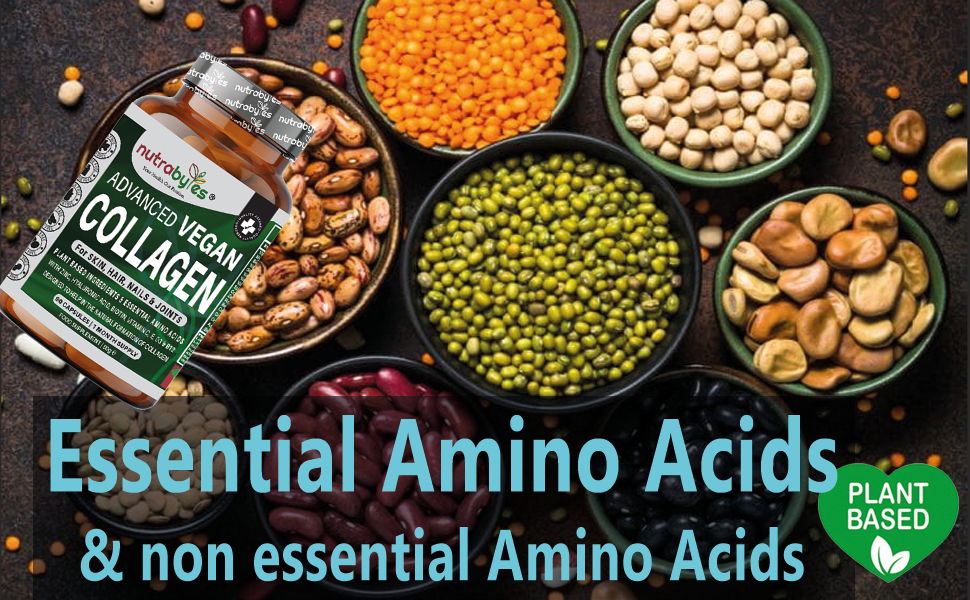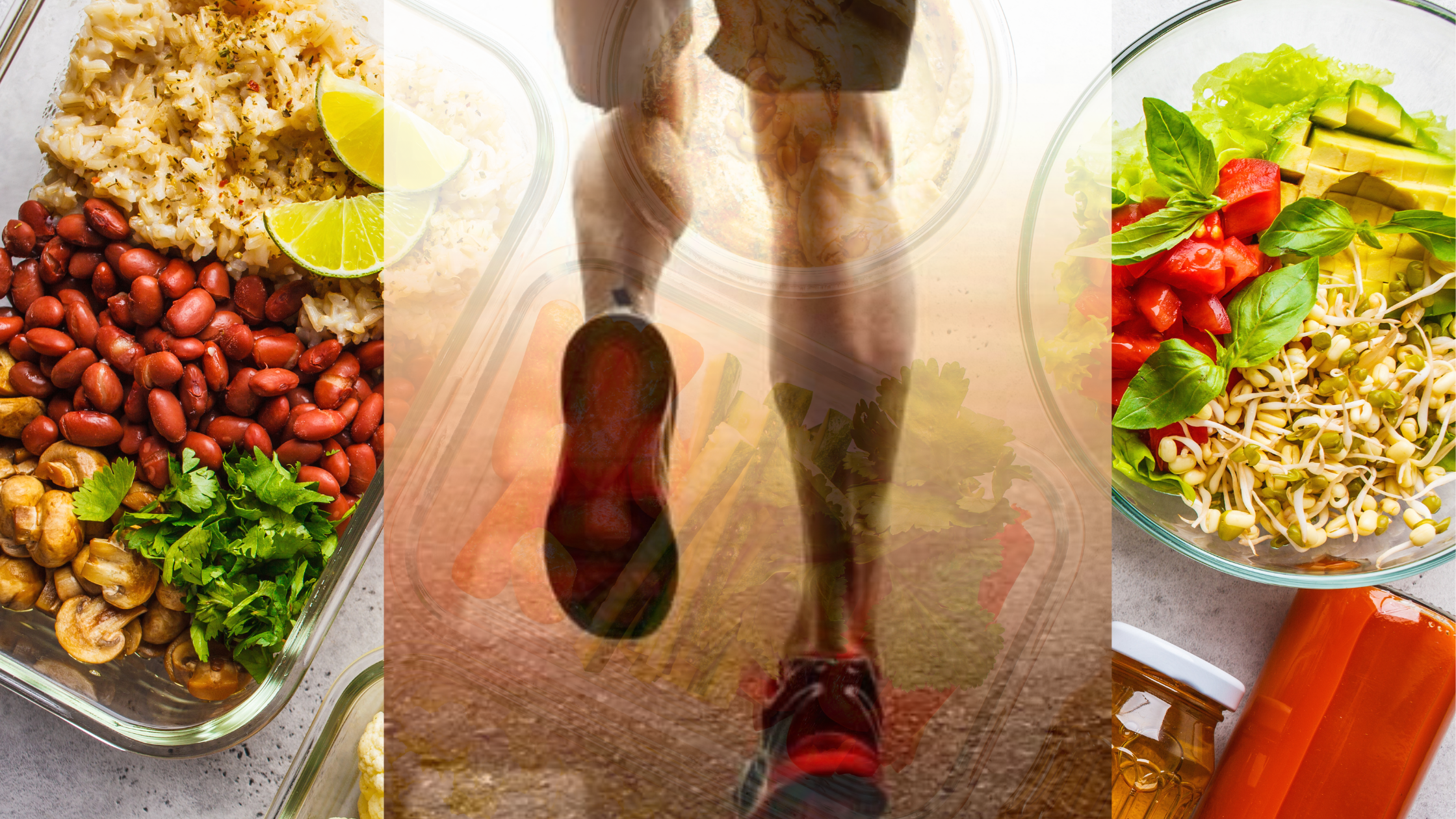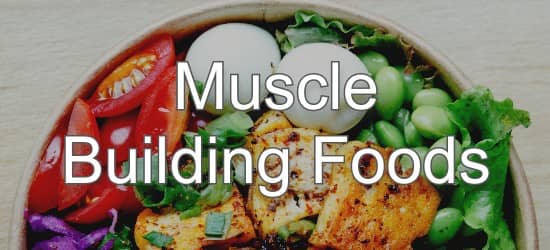Looking to gain muscle on a plant-based diet? Here are some vegan weight gain tips to help you build muscle effectively.
I will guide you through nutrition, training, and lifestyle tips to help you meet your muscle-building goals while following a plant-based diet. Whether you’re a long-time vegan or considering transitioning to a plant-based lifestyle, understanding the right approach to vegan weight gain can help you optimize your muscle growth.
By focusing on nutrient-dense plant foods and following a well-rounded training program, you can achieve your muscle-building goals while staying true to your vegan principles. We’ll explore the key strategies for gaining muscle on a plant-based diet and provide practical tips to support your journey toward building a strong and healthy physique.
Why Vegan Weight Gain Is Possible
Vegan weight gain is not only possible but also achievable with the right approach. Contrary to popular belief, a plant-based diet can provide the necessary nutrients and protein to support muscle growth and overall weight gain.
High Protein Plant-based Foods
Plant-based foods rich in protein are essential for vegan weight gain. These include tofu, tempeh, and edamame as excellent sources of plant-based protein. Lentils, chickpeas, and beans also offer substantial protein content. Moreover, quinoa, seitan, and hemp seeds are valuable additions to a vegan muscle-building diet.
Balanced Macronutrient Intake
As with any diet aimed at weight gain and muscle building, plant-based eaters need to focus on a well-balanced macronutrient intake. This means incorporating a mix of complex carbohydrates, healthy fats, and protein into every meal. Whole grain, avocado, nuts, and seeds are excellent sources of healthy fats, while brown rice, oats, and sweet potatoes provide essential complex carbohydrates. By combining these with the high protein plant-based foods mentioned earlier, individuals can ensure a well-rounded macronutrient intake for success in gaining weight on a vegan diet.

Credit: www.amazon.com
Getting Started: Essentials For Vegan Weight Gain
Vegan weight gain requires a strategic approach to nutrition and exercise to ensure the body receives an adequate amount of calories and nutrients necessary for muscle growth. When starting on the journey of vegan weight gain, it is essential to focus on creating a caloric surplus and incorporating strength training into your routine.
Caloric Surplus
To effectively gain weight on a vegan diet, one must consume more calories than the body expends. The key to achieving a caloric surplus is by consuming nutrient-dense, high-calorie foods such as avocados, nuts, seeds, and legumes. It is essential to calculate your basal metabolic rate and then add a surplus of calories to support muscle growth. Additionally, consuming larger portions and incorporating healthy fats can assist in reaching your caloric goals.
Strength Training
Engaging in regular strength training exercises is crucial for building muscle on a plant-based diet. By utilizing your body weight, resistance bands, or free weights, you can effectively stimulate muscle growth. Compound movements such as squats, deadlifts, and pull-ups are particularly beneficial for promoting muscle development. It is important to establish a well-structured strength training program and gradually increase the intensity and frequency of your workouts to encourage muscle growth.
Top Vegan Foods For Muscle Building
If you’re following a vegan diet and aiming to build muscle, you might have concerns about getting enough protein and other essential nutrients. Rest assured, there are numerous plant-based options that can support your muscle-building goals. Include these top vegan foods in your diet, and you’ll be well on your way to gaining muscle on a plant-based diet.
Legumes And Lentils
Legumes and lentils are excellent sources of plant-based protein, fiber, and carbohydrates that can fuel your workouts and promote muscle growth. They are also packed with essential vitamins and minerals.
Here are some popular legumes and lentils you can incorporate into your diet:
- Chickpeas
- Lentils
- Black beans
- Split peas
- Edamame
Quinoa And Other Whole Grains
Whole grains like quinoa, brown rice, and oats are excellent sources of complex carbohydrates, which provide sustained energy for your workouts. They are also rich in fiber and essential minerals that contribute to muscle function and recovery.
Here are some whole grains worth including in your diet:
- Quinoa
- Brown rice
- Oats
- Millet
- Barley
Nuts And Seeds
Nuts and seeds are not only tasty and convenient but also offer an array of nutrient-dense benefits. They provide healthy fats, protein, and important minerals like magnesium, which plays a crucial role in muscle function and recovery.
Here are some nuts and seeds to consider incorporating into your diet:
- Almonds
- Walnuts
- Chia seeds
- Flaxseeds
- Hemp seeds
By including these vegan foods in your diet, you can ensure you’re getting the necessary nutrients to support muscle growth and achieve your fitness goals. Incorporate a variety of these foods into your meals and snacks throughout the day to ensure a well-rounded intake of protein, carbohydrates, healthy fats, and essential vitamins and minerals.
Optimizing Nutrient Intake For Muscle Growth
When it comes to building muscle on a plant-based diet, optimizing nutrient intake is key. One of the most important factors for muscle growth is ensuring a sufficient intake of complete proteins and amino acids. Additionally, protein timing and distribution also play a significant role in maximizing your muscle-building efforts.
Complete Proteins And Amino Acids
Complete proteins contain all nine essential amino acids that the body cannot produce on its own. By incorporating a variety of plant-based protein sources in your diet, you can ensure you are consuming all the essential amino acids necessary for muscle growth.
Meals and snacks rich in complete proteins are essential for muscle development. Some great sources of complete proteins on a vegan diet include:
- Quinoa
- Soy products (such as tofu and tempeh)
- Seitan
- Buckwheat
- Chia seeds
- Hemp seeds
By incorporating these protein sources into your meals, you can provide your body with the necessary amino acids to support muscle growth and repair.
Protein Timing And Distribution
Protein timing and distribution throughout the day play a crucial role in muscle growth optimization. Instead of consuming a large amount of protein in one meal, it is recommended to spread your protein intake evenly throughout the day.
| Meal | Protein Source |
|---|---|
| Breakfast | Tofu scramble with vegetables |
| Snack | Almond butter and apple slices |
| Lunch | Quinoa and black bean salad |
| Snack | Protein smoothie with hemp seeds |
| Dinner | Lentil curry with brown rice |
| Snack | Roasted chickpeas |
By spreading your protein intake throughout the day, you ensure a constant supply of amino acids for muscle repair and growth. This approach prevents any wastage of protein and maximizes its utilization by your body.
Remember, building muscle on a plant-based diet is entirely achievable. By optimizing your nutrient intake, focusing on complete proteins and amino acids, and ensuring protein timing and distribution throughout the day, you can support muscle growth and reach your fitness goals.
Supplements For Vegan Muscle Building
In addition to a well-balanced plant-based diet, supplements can play a crucial role in helping vegans build muscle. They provide the necessary nutrients that may be lacking in a vegan diet and help enhance muscle growth and recovery. Here are three key supplements to consider:
Plant-based Protein Powders
Plant-based protein powders are an excellent source of protein, essential for muscle building. They are made from ingredients like pea, hemp, rice, and soy, offering a complete amino acid profile. Protein powders help meet your daily protein requirements and aid in muscle repair and growth. Look for products that are third-party tested for quality and allergen-free. Brands like Sunwarrior, Vega, and Garden of Life offer a wide range of plant-based protein powders.
Creatine
Creatine is a naturally occurring compound found in muscles that provides energy during high-intensity exercise. Supplementing with creatine can enhance muscle strength and power, leading to increased muscle mass. Vegans can opt for creatine monohydrate, which is typically derived from non-animal sources. It is important to follow the recommended dosage and stay hydrated while using creatine. Popular vegan creatine options include products from BulkSupplements and Naked Nutrition.
Omega-3 Fatty Acids
Omega-3 fatty acids are essential for muscle recovery and reducing inflammation. While fish oil is a common source, vegans can obtain omega-3s from plant-based alternatives such as algae oil. Algae oil contains both EPA and DHA, the two crucial omega-3 fatty acids. These nutrients promote cardiovascular health, support joint function, and aid in muscle growth. Choose algae oil supplements that are sustainably sourced and free from contaminants like heavy metals. Brands like Testa Omega-3 and Nordic Naturals offer vegan-friendly omega-3 supplements.
Remember, while supplements can support vegan muscle building, it is important to prioritize a varied and nutrient-rich diet. Consult with a healthcare professional before starting any new supplements, especially if you have underlying health conditions or take medication. By combining a plant-based diet with these supplements, you can effectively support your muscle building goals whilst maintaining a vegan lifestyle.

Credit: www.nutrabytes.com

Credit: theplantedrunner.com
Frequently Asked Questions For Vegan Weight Gain: Tips For Building Muscle On A Plant-based Diet
Can I Gain Muscle On A Plant-based Diet?
Yes, you can gain muscle on a plant-based diet. By consuming a variety of protein-rich plant foods like beans, lentils, tofu, and quinoa, along with proper training and recovery, it is possible to build and maintain muscle mass.
How Do Vegans Gain Muscle Mass?
Vegans can gain muscle mass by consuming a variety of plant-based protein sources, such as legumes, tofu, and tempeh. Incorporating strength-training exercises and ensuring adequate calorie intake are also important.
How Can I Gain Weight On A Plant-based Diet?
To gain weight on a plant-based diet, focus on calorie-dense foods like nuts, seeds, avocados, and coconut milk. Incorporate plenty of whole grains, legumes, and starchy vegetables into your meals. Including plant-based protein sources like tofu, tempeh, and seitan can also help in building muscle mass.
How Much Protein Do You Really Need To Build Muscle Vegan?
To build muscle on a vegan diet, you typically need 0. 8 to 1 gram of protein per pound of body weight.
Conclusion
Building muscle on a plant-based diet can be challenging but not impossible. By focusing on high-protein plant-based foods, incorporating strength training, and following a well-balanced meal plan, vegans can effectively gain muscle mass. Remember to listen to your body, adjust your calorie intake accordingly, and stay consistent with your training regimen.
With the right approach and determination, achieving your fitness goals on a plant-based diet is within reach.
